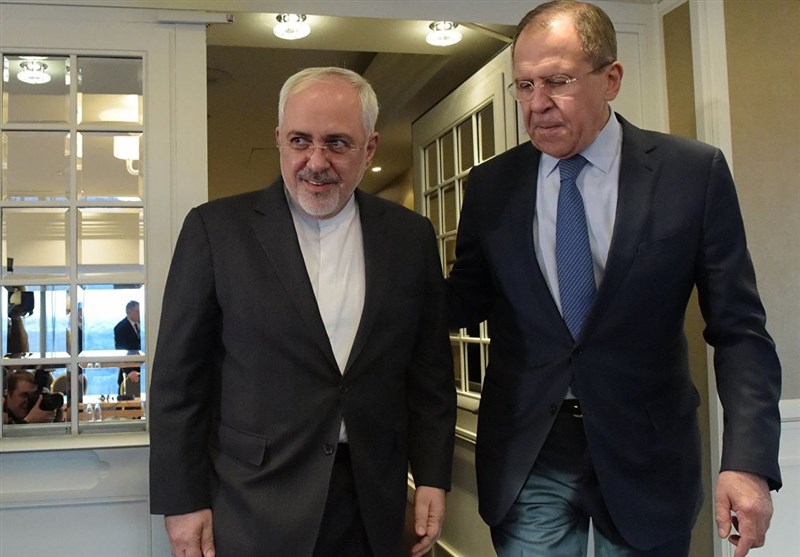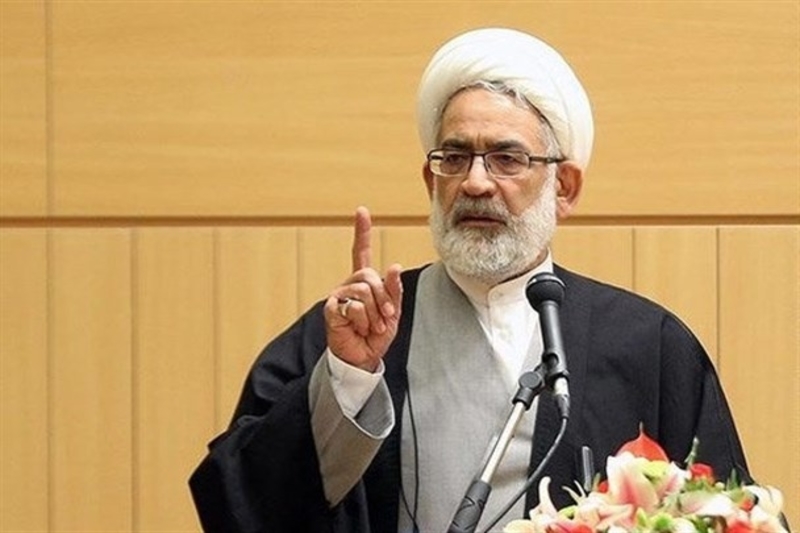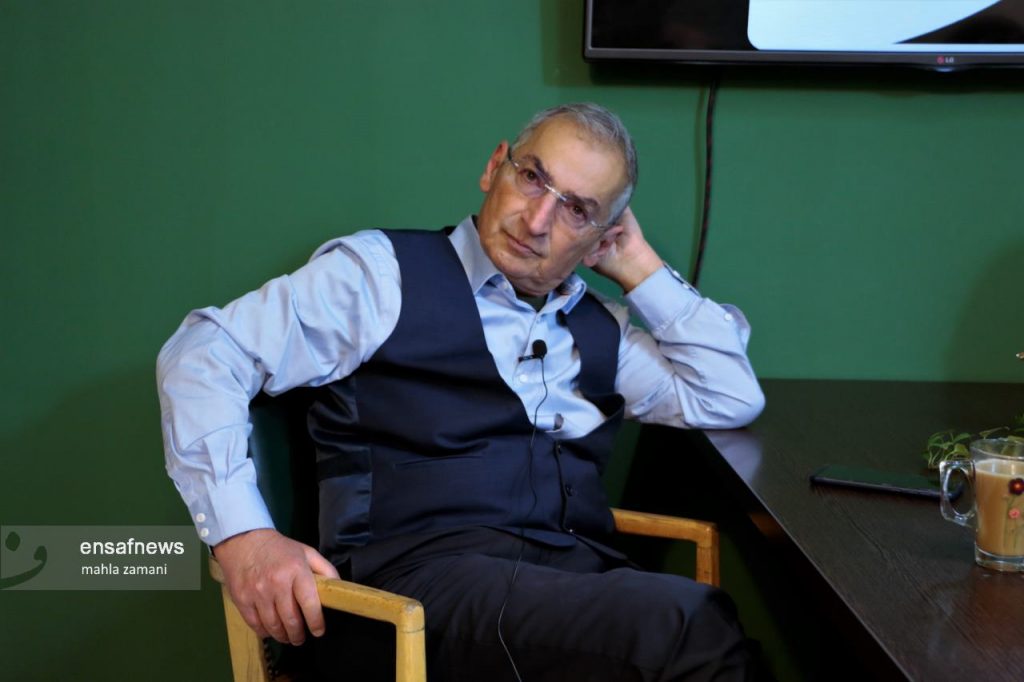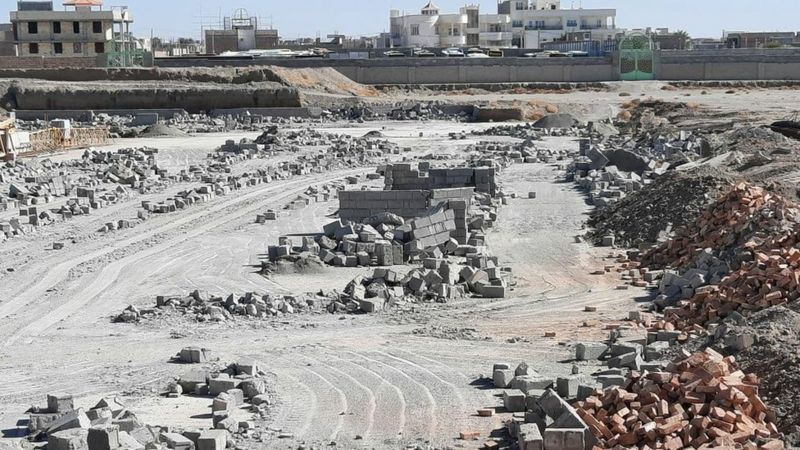
On Why the Lawmaker Who Slapped the Dutiful Soldier Must Be Punished
Recently, an Iranian lawmaker slapped a soldier who was fulfilling his duty and trying to stop the lawmaker from breaking the traffic law. The editorial of Setareh Sobh explains why it is of utmost necessity to punish the lawmaker for his misconduct.
In recent years, we have witnessed immoral behavior by some influential, powerful individuals in daily life. The recent cases include insulting the Iranian president on a television program and a hardline lawmaker slapping a soldier – which caused widespread controversy in society and offended many people.
One of the issues with Iranian officials and authorities is that they act unethically and unlawfully. We must know that when ethics is missing from a society, the law too will be violated. In many countries of the world, individuals and officials cannot evade the law, and all are equal before the law – from the highest to the lowest ranks. No one can abuse his or her position.
In the Iranian Constitution, it is stipulated that “before the law, the leader is as equal as other individuals in the country.” But in some positions, those in power do not obey moral laws, which disqualifies them for their positions. Naturally, these individuals become arrogant and they cannot be controlled. They do not fear the law, which is why they act immorally and unlawfully.
In recent years, we have seen some of these morally lacking people in the Parliament breaking the law and trampling on morality. In a recent case, a draft soldier who was fulfilling his duty was beaten up. If anyone, even the highest ranking official in the country, sees a soldier who is fulfilling his duty, he must respect that person and express his gratitude to him for enforcing the law.
The crime of a lawmaker slapping a soldier must be severely confronted. Insulting a soldier is not just offending one individual; rather it is insulting the entire system of law and order. The draft soldier, in this case, stood up to the lawmaker who intended to break the law; the lawmaker who enacts legislation slapped him, which makes his conduct far worse. If the law must be enforced fairly for all, this lawmaker’s ethical competence must be reviewed, and he must be ousted from the Parliament.
If such cases are ignored, chaos and disorder will take over the entire country – which is why public opinion expects the offender to be punished.
Zarif Is not too Subtle!
The editorial of Vatan Emrooz slams Foreign Minister Mohammad Javad Zarif for his interview with the reformist newspaper Ebtekar.
In an interview with Ebtekar, Zarif remarked: “When I sit in front of the world, I represent the entire establishment of Iran, so I have to defend things that I personally don’t believe in and I am critical of them, but I know that those who are critical of those policies do not have the best intention.”
In another part of his interview, Zarif went on: “On the international scene, I defended some measures while I held that these measures are not good for national interests. But these measures were done by others, not me, and as the foreign minister of Iran, I had to defend them – whether I agree or disagree with them.”
To make his point clearer, Zarif spoke of human rights conditions in Iran, implying that human rights are not observed in Iran. Knowingly or unknowingly, Zarif confirmed claims made against Iran. Meanwhile, it is incumbent on the foreign minister to defend the country and decisions made by different institutions.
During his tenure, Zarif has made many such remarks, which are examples of his unpatriotic stance during the seven years he has served as foreign minister.
Decline in Ethics, Decline in Politics
The editorial of Iran newspaper, written by Iranian government spokesman Ali Rabiei, focuses on a recent incident on Iran state television, IRIB, when a guest on a program accused the Iranian president of being addicted to opium in vulgar language.
The remarks made by a guest on a television program should not be seen as accidental. It is not just about the use of a particular word in this program. For a while, certain words and actions have indicated the ethical decline and shortcomings in Iran’s social and political domains.
This phenomenon can be viewed from the two perspectives of cultural studies and political sociology. From the perspective of cultural studies, one can say that the national media which must promote culture and grand ideas has turned into a center for promoting political inequalities and sabotaging others.
When politics is used only to gain power, then political achievements gradually decrease and verbal violence increases. Consider what was said when Iranian Foreign Minister Mohammad Javad Zarif went to the Parliament for a hearing: there were calls for executing this person or that person, accusations were hurled based on misinformation, and violent language was used.
Ethics regulate peaceful, constructive relations among human beings. But today when we see violent language used by senior political actors, it will spread to other social groups and even the national media. Then we have a decline in ethics.
From the viewpoint of political sociology, such aggressiveness and political behavior can be attributed to Donald Trump’s unexpected defeat in the US election, as a result of which there is new hope for reviving the nuclear deal. During the past four years, some Iranian politicians [hardline “principlists”] blamed the nuclear deal and even the strategy of “constructive interaction with the world” for all the failures and shortcomings in society and the economy, hoping to disappoint people who had voted for the current Iranian government in 2013 and 2017.
Hardline “principlists” hoped that Trump’s victory would pave the way for them to gain power in Iran. Now that contrary to their expectations, he has lost, they are reacting rashly and violently in the national media.
Private Sector Hammered by Politics
The editorial of Tejarat focuses on the necessity of privatizing Iran’s economy as the only way forward, emphasizing that the economy has greatly suffered from partisanship and playing politics in the country.
If China was able to emerge as a rising power in the global economy, it didn’t play politics in this regard and didn’t try to re-invent everything from scratch. A large part of Iran’s budget is spent on re-inventing things that already exist – wasting time and money as such. If the US dollar is now the foundation for global trade, that is because the United States could take over the global economy via creating cartels and technological and engineering companies. Nowadays, even governments are under the influence of these companies. Consequently, the private sector plays a considerable role in creating jobs and entrepreneurship.
But in Iran, the private sector has suffered from the erroneous actions of policymakers. Several manufacturing centers have shut down, or due to the lack of raw materials or the high rate of foreign currency, they cannot compete with others. In 1924, the Pasteur Institute of Iran produced a vaccine. Now 96 years later, when they claim to produce a vaccine, it is still hard for politicians to believe that it is doable.
Iran must get rid of partisanship and those who play politics so that it can become one of the economic powers in Western Asia in the next five years. For years, it has been emphasized that Iran should stop selling raw materials. The government, however, is happy to claim that it will sell 2 million barrels of oil per day in 2021.
If Iran wants its economy to move froward efficiently, it must entrust the government’s projects to the private sector. Yet the Iranian Parliament and the government have made it impossible to achieve any leap in production and entrepreneurship – one with legislating ineffective laws and the other with its exclusivist views.

Tehran, Moscow Sign Cyber Security Cooperation Agreement;Signal Messenger Filtered in Iran

Along with filtering Signal messenger in Iran and the widespread anti-government protests in Russia, Russian Foreign Minister Sergey Lavrov and Iranian Foreign Minister Mohammad Javad Zarif signed a cooperation agreement in the field of cyber security.
In a joint press conference with Zarif in Moscow, Lavrov said the agreement will give both countries the opportunity to increase activities, given the increasing significance of cyber issues and their impact on international relations.
The full details of the cooperation agreement between the two countries have not been released, but Lavrov says its objective is “ensuring information security.” The agreement reportedly includes “combatting cyber-crimes,” “technological aids” and “coordination and cooperation in regional and international organizations for providing national and international security.”
Both Iran and Russia have been facing widespread protests from their opponents through social media.
In 2017, 2018, and 2019, the Iranian government faced widespread protests against poor living conditions and the deteriorating economy, as well as political oppression. Iranian officials repeatedly underlined that widespread protests were organized on social media, emphasizing the necessity of limiting social media platforms.
Meanwhile, according to social media users, Signal messenger has been blocked and its application and website are filtered in Iran.
IT websites say that it is impossible to access Signal without using a VPN. Signal, which is said to be a secure messaging service, was used as a replacement for WhatsApp by Iranian users. But recently, app stores and online stores had to remove the Signal app so that users cannot download it.
Signal messenger has reacted to being filtered in Iran, writing in a tweet: “Iranian people deserve privacy. We haven’t given up.”
Many social media and messaging services in Iran have been filtered for security, political and religious reasons. WhatsApp and Instagram are among the few apps that can still be accessed in Iran.
Recently, there have reports regarding increasing efforts to filter Instagram in Iran.
Rift Widens Between Judiciary and Rouhani’s Government Over Internet Filtering Policies

A week after Iran’s Minister of Information and Communications Technology Mohammad Javad Azari-Jahromi was summoned to court for his “refusal to implement judicial orders regarding Instagram filtering,” Prosecutor General Mohammad Jafar Montazeri said this was not his only charge. Montazeri noted that Azari-Jahromi was summoned due to different complaints filed against him to the Tehran court. “He is facing numerous charges,” he stated.
Montazeri also pointed out that after the investigation, the charges might be dismissed by the court, “but he should be held accountable as a suspect nonetheless.” The prosecutor general stressed they had previously told the ICT minister that such “harmful” social media must be filtered but unfortunately nothing happened. Azari-Jahromi has also been accused of refusing to enforce the ratifications of the Cyberspace Supreme Council regarding reducing the international bandwidth and restricting foreign messaging services as well as blocking VPNs.
Meanwhile, the government spokesman has supported the ICT minister, saying that he adopted measures based on the decisions of President Rouhani and his administration. Ali Rabiei opposed filtering Instagram, saying it would put nearly 1 million Iranians out of their jobs. Elaborating on his statement, Rabiei said Iranians have around 400,000 Instagram pages, 28.8 percent of which are related to businesses. The government spokesman also referred to the failed restrictive policies of Iranian officials, such as prohibiting the usage of satellite television: “For years, police used to look for satellite dishes over roof tops,” said Rabiei, “Now look at the roof tops of the houses in the most distant villages and even the roof tops of the very same policymakers!”
Reporters Without Borders (RSF) included Iran among the 20 “worst digital predators” in 2020. Freedom House also ranked Iran as one of the worst countries in terms of internet freedom in its annual report.
Zibakalam: “Elections Are Meaningless in Iran, Reformists Are Disgraced, Radicals Will Compromise With Biden”

After years of supporting the reformist faction and encouraging people to participate in the elections, prominent academic Sadegh Zibakalam has now admitted that elections are meaningless in his country and his faction has become disgraced more than ever in the eyes of the people. Zibakalam also believes that the radical faction in Iran’s establishment will compromise with US President Joe Biden after seizing complete power in the 2021 presidential election.
“The 2021 election is a dead body that can never be revived,” said Zibakalam in an interview with Ensaf News. He noted “reformists” could not even gain 5 percent of votes in Iran’s latest parliamentary election, adding that Rouhani played a significant role in disgracing the “reformists”. The testament to this fact is the slogan people chanted during the December 2017 protests: “Principlists, reformists! The game is over,” Zibakalam stated.
The Tehran University professor also holds that as long as there is approbatory supervision, participating in elections makes no sense. “I know that the president has no power, the Parliament speaker has no power, the judiciary chief has no power,” he asserted, “I was under the impression that we can get closer to democracy through ballot boxes, but now I’ve realized that they won’t let that happen.”
Slamming the “reformists”, Zibakalam remarked: “They have no leader, no organization, not even a clear political plan and objective.”
As for Iran’s 2021 presidential election, Zibakalam maintained that the radical faction will seize complete power after a narrow win, shaping a unanimous establishment like that of Mahmoud Ahmadinejad. “Given that Trump is no longer in power and Biden has shown the green light, we might move towards a ‘heroic flexibility’ [a new JCPOA] and I believe the 2021 JCPOA has a much greater chance of success than the 2015 one.”
Several Kurdish Citizens Arrested; Baloch Activists Under Pressure

According to human rights organizations in Kurdistan province, several Kurdish activists have been recently arrested in Iran. The number of detainees is reportedly between 50 to 67 individuals.
The recent wave of arrests of Kurdish citizens in Iran started about two weeks ago.
According to Kurdistan Human Rights Organization, the detainees are currently being investigated and no charges have been pressed against them yet.
No information has been given to the detainees’ families.
According to Kurdistan Human Rights Organization, security forces have arrested these individuals without offering any arrest warrants and “while resorting to verbal – and in some cases physical – violence.” Also, many detainees’ houses and workplaces have been searched and their personal belongings including their cellphones and laptops have been seized.
In a statement, a number of civil and political activists have objected to the recent arrests of activists, calling for their immediate release. The arrests have reportedly been made by the IRGC intelligence office.
Meanwhile, following the destruction of a religious site belonging to Sunnis in the city of Iranshahr and the arrest of a Sunni cleric, there is concern over the security situation in Sistan and Balochistan province.
There have also been reports regarding the security situation and shootings in the city of Iranshahr. In recent weeks, the execution of a number of Baloch activists and citizens has led to objections by citizens and overseeing organizations.
According to reports, the foundation of a “musalla” (open space outside a mosque used for prayer) in Iranshahr’s mosque was destroyed.
According to Baloch Campaign, the construction of this musalla has been blocked by the representative of the supreme leader in Sistan and Balochistan in order to “put pressure on the Sunnis to cooperate with the Intelligence Ministry.” Baloch Campaign says this is the third mosque where construction has been ceased by the supreme leader’s representative in this province.
